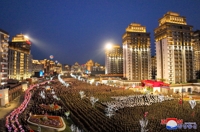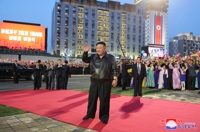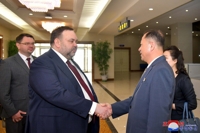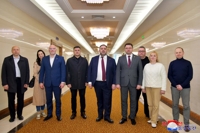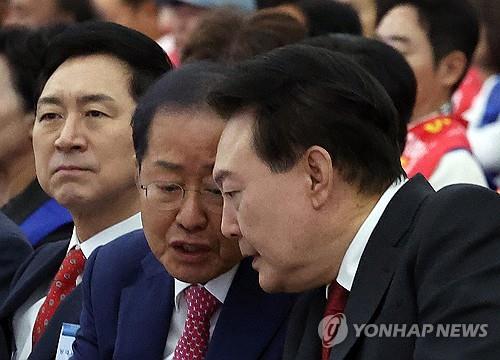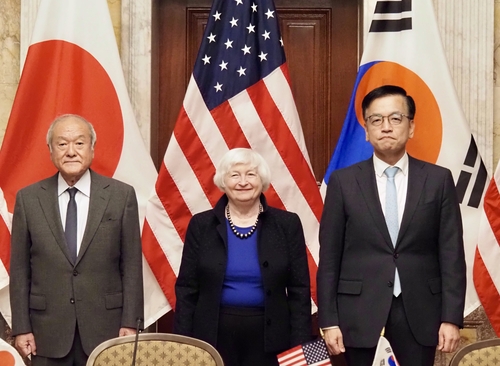(EDITORIAL from the Korea Times on Nov. 29)
Free press takes a beating
Top court indulges media control schemes
A recent egregious ruling by the Supreme Court has dealt a major setback to Korean journalists' struggle to give fair, unbiased reportage.
After dragging its feet for three years and seven months, the top court on Thursday upheld an appellate court's ruling that cable news network YTN's dismissal of three journalists was legal.
YTN, in which the government owns a majority stake, fired six unionized workers, including former union leader and anchor Noh Jong-myeon, in 2008, for staging a 90-day sit-in in protest against former President Lee Myung-bak's appointment of his aide to head the public broadcaster.
It was regrettable that the ruling, while not entirely denying that the journalists' acts were for promoting the public good through free and impartial reporting, still put the ''core management right" of the top manager ahead of it.
The top court's decision was dismaying not only because it failed to separate a media company from other businesses but because it overturned the lower court's proper ruling that found the dismissal null and void, as it punished journalists for doing what they should do ― seeking to protect a media organization from the influence of political power, thus better serving the public.
It was all too apparent what would happen to YTN when Gu Bon-hong, former President Lee's chief broadcasting adviser in both the campaign and transit teams, took over the news-only channel. Such concerns became a reality after Gu took office. He did away with various systems aimed to ensure free and independent reporting, including one in which journalists in the newsroom recommend candidates for the managing editor position.
Sixteen former journalists were dismissed from public broadcasters, including MBC, during five years under the previous administration, amid Lee's unabashed efforts for media control, and have yet to return to their jobs. We are afraid the court's latest ruling will adversely affect the seven former MBC reporters who won the first trial and appeal but await ruling by the top court. Also regrettable is the increasingly regressive Supreme Court, now filled with conservative justices appointed by Lee, an issue that should be addressed through diversifying its composition.
Upon inauguration two-and-a-half years ago, President Park Geun-hye promised to consider the "dismissed journalists' case," favorably, but this has ended up as one of her numerous "hollow pledges." Now that the judicial procedure has finished, the only hope left for the sacked journalists is a political decision from the chief executive.
Korea's press freedom was ranked 50th in the world last year, down six notches from 2012. We hope the Park administration will not go down in history as one that cracked down on journalists and set back freedom of speech dismally.
The nation's democratization in a relatively short period has earned some admirers in the world. Press freedom is a prerequisite for a mature democracy, and fair and unbiased reporting is a must for enhancing press freedom. As things stand now, Koreans might soon find that the miracle of its economy and democracy was only a mirage.
(END)
-
 Defense chief says N. Korea's hypersonic missile 'unsuccessful' in last-stage glide flight
Defense chief says N. Korea's hypersonic missile 'unsuccessful' in last-stage glide flight -
 Relax, immerse yourself in scents at Venice Biennale's Korean Pavilion
Relax, immerse yourself in scents at Venice Biennale's Korean Pavilion -
 Overdue debut of Korean abstract art pioneer Yoo Young-kuk at Venice Biennale
Overdue debut of Korean abstract art pioneer Yoo Young-kuk at Venice Biennale -
 N. Korea has capability to genetically engineer biological military products: U.S. report
N. Korea has capability to genetically engineer biological military products: U.S. report -
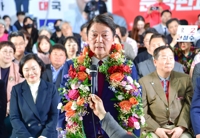 PPP lawmaker says entire Cabinet should resign over general elections defeat
PPP lawmaker says entire Cabinet should resign over general elections defeat
-
 Relax, immerse yourself in scents at Venice Biennale's Korean Pavilion
Relax, immerse yourself in scents at Venice Biennale's Korean Pavilion -
 Overdue debut of Korean abstract art pioneer Yoo Young-kuk at Venice Biennale
Overdue debut of Korean abstract art pioneer Yoo Young-kuk at Venice Biennale -
 Defense chief says N. Korea's hypersonic missile 'unsuccessful' in last-stage glide flight
Defense chief says N. Korea's hypersonic missile 'unsuccessful' in last-stage glide flight -
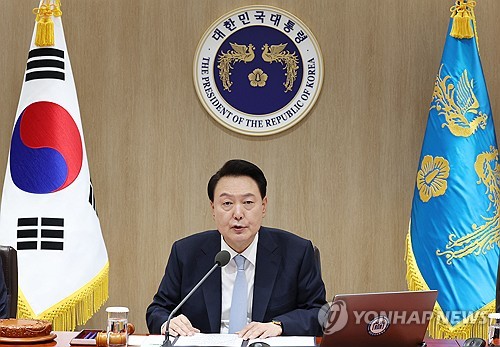 (LEAD) Yoon vows to improve communication with people after election defeat
(LEAD) Yoon vows to improve communication with people after election defeat -
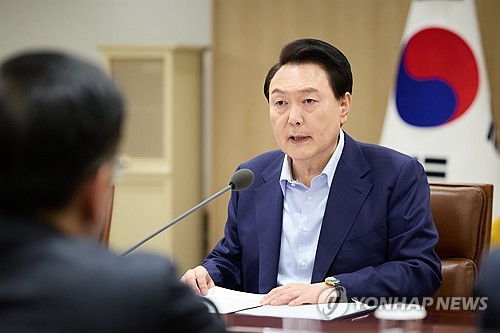 Yoon presides over emergency meeting on Mideast crisis
Yoon presides over emergency meeting on Mideast crisis
-
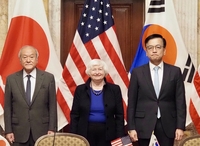 (4th LD) Finance chiefs of S. Korea, U.S., Japan recognize 'serious' concerns over 'sharp' won, yen depreciation
(4th LD) Finance chiefs of S. Korea, U.S., Japan recognize 'serious' concerns over 'sharp' won, yen depreciation -
 S. Korea to provide 100,000 tons of rice to 11 nations
S. Korea to provide 100,000 tons of rice to 11 nations -
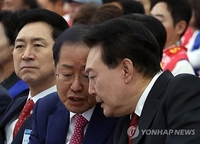 Yoon, Daegu mayor met to discuss post-election matters: sources
Yoon, Daegu mayor met to discuss post-election matters: sources -
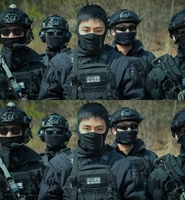 Facebook page unveils photos of BTS member V in counter-terrorism unit gear
Facebook page unveils photos of BTS member V in counter-terrorism unit gear -
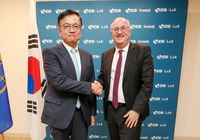 S. Korea to provide US$200 million in humanitarian aid to Ukraine this year
S. Korea to provide US$200 million in humanitarian aid to Ukraine this year















